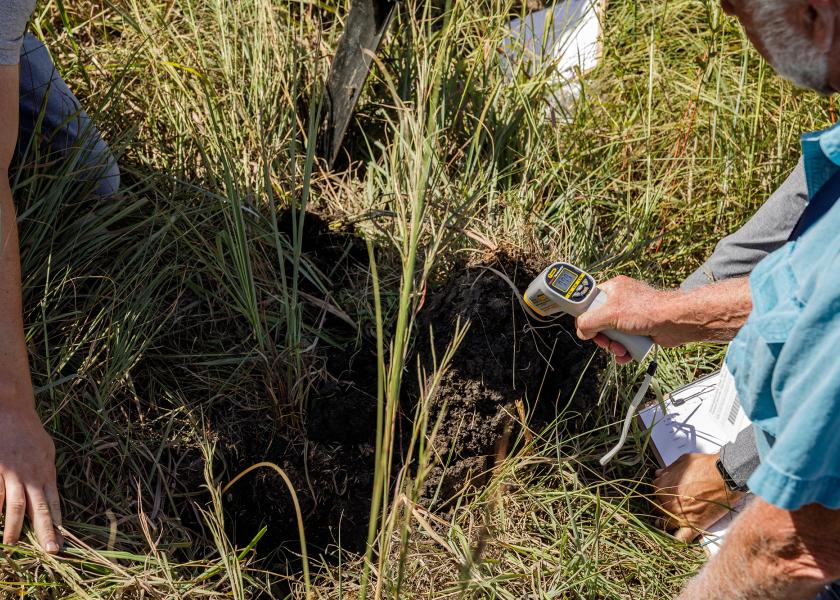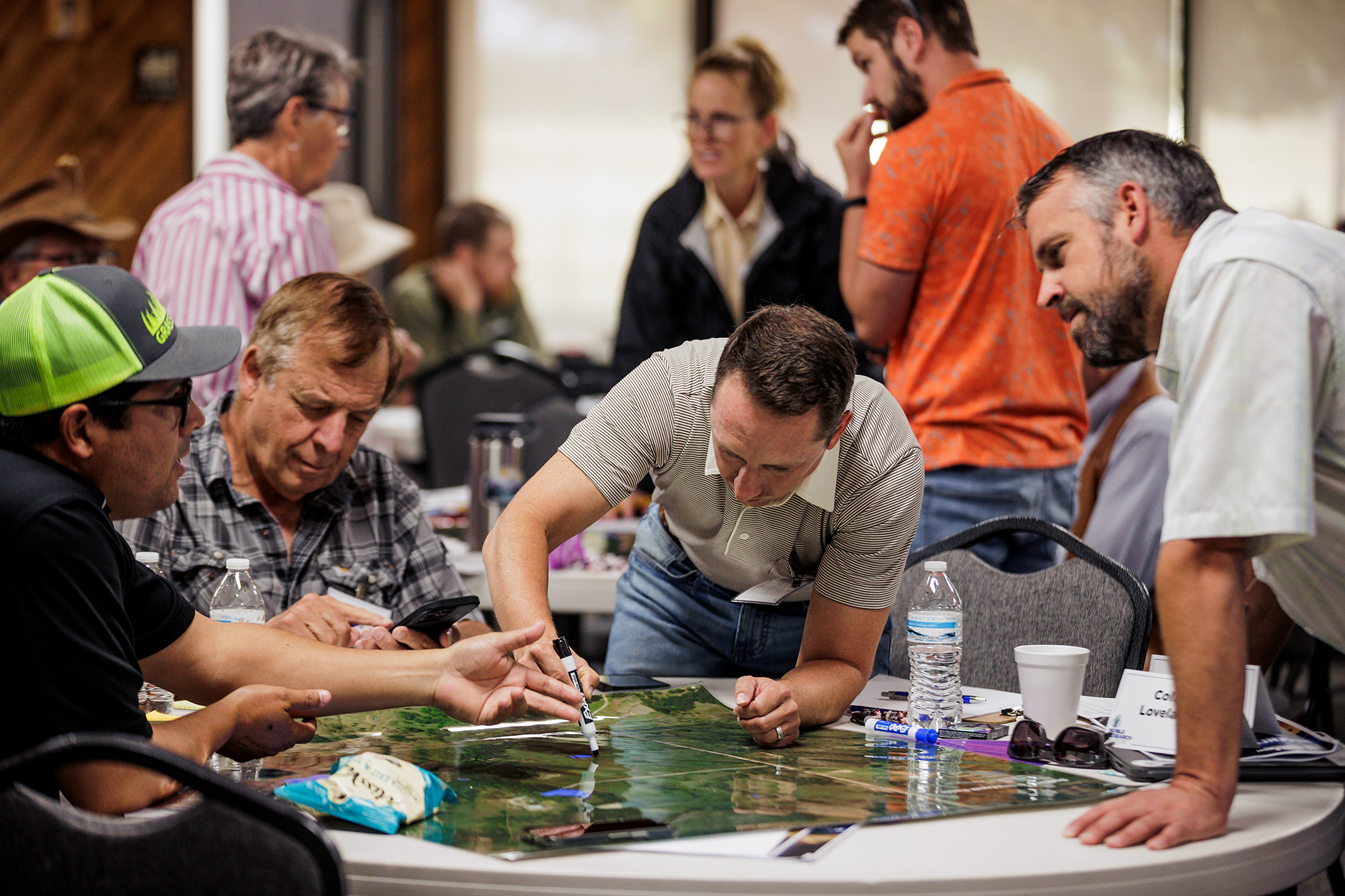Essentials of Regenerative Grazing - Noble Research Institute Announces Second New Course

Noble Research Institute is offering a new course for the first time this month: Essentials of Regenerative Grazing. This is the second course in a series of new educational programs designed to help ranchers enhance and restore the land, to make it more resilient and reach livestock grazing goals through regenerative management.
Essentials of Regenerative Grazing provides producers with the tools, skills and knowledge needed to initiate a grazing management strategy appropriate for their livestock operation. Ranchers and farmers can attend the three-day, in-person course Oct. 23-25 at Noble Research Institute in Ardmore, Oklahoma, or Nov. 14-16 at the Miami Tribe of Oklahoma Council House in Miami, Oklahoma.
Registration for the Essentials of Regenerative Grazing course is open now at https://www.noble.org/essentials-of-regenerative-grazing. Seating is limited, so early registration is recommended.

“Program participants gain working knowledge and experience in strategically applying adaptive grazing techniques to enhance the ecosystem function and soil health of their ranches,” says Hugh Aljoe, Noble Research Institute’s director of ranches, outreach and partnerships. “We use a mix of classroom and field work to send producers home with the tools to make practical and effective changes to their grazing management that will improve the soil health of their grazing lands and the profitability of their operations.”
Grazing management can be the most important and impactful tool used to improve soil health on grazing lands. This class provides participants with tools to apply a “safe to learn” approach to their operations at a comfortable scale as they begin grazing regeneratively. The information presented helps producers understand how to graze more effectively and improve the ecosystem of their ranches. As the ecosystem improves, so will soil health and ranch profitability.
The Essentials of Regenerative Grazing course is suited for ranches of all sizes and producers of all experience levels. Participants will take home skills and knowledge to begin adaptive high stock density grazing on their own operations. Transforming the entire ranch into a more regenerative operation occurs one grazing event at a time. This course demonstrates how a grazing manager gets started.
The curriculum for the course was designed in collaboration with grazing expert, consultant and author Jim Gerrish. The in-person, hands-on, three-day training will give participants the knowledge and experience they need to:
- Identify variables and resources to consider in a grazing plan
- Predict the impact of grazing management decisions on soil health
- Establish grazing management goals and the initial steps to reach them
- Determine the limiting factor of current grazing practices and develop a strategy to address it
- Anticipate potential challenges and pivot strategies appropriately
- Apply a “safe to learn” approach to regenerative grazing to use at home
Gerrish and other experienced Noble facilitators will teach and demonstrate easy-to-follow techniques to quickly assess forage production and infrastructure capacity in order to create the immediate steps needed to begin grazing more effectively. Follow-up opportunities will keep course attendees connected with a peer network of fellow ranchers and coaching services from Noble’s facilitators.
Here’s what one recent attendee said about the Essentials in Regenerative Grazing Course:
One of the things I was able to witness over the last three days is how to manage cause and effect of whether you graze it enough, or don’t graze it enough or graze it too much. Then the recovery period is the key, coming back to it, and how to monitor that, and know when the time is right.
Kerry Cornelius, ranch management professor at Texas Christian University and a cattle and sheep rancher from Weatherford, Texas.







